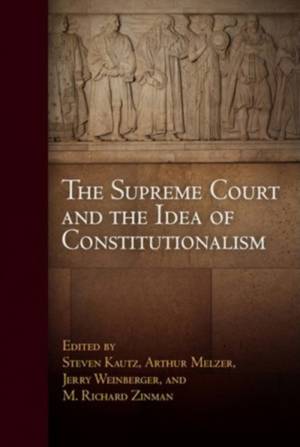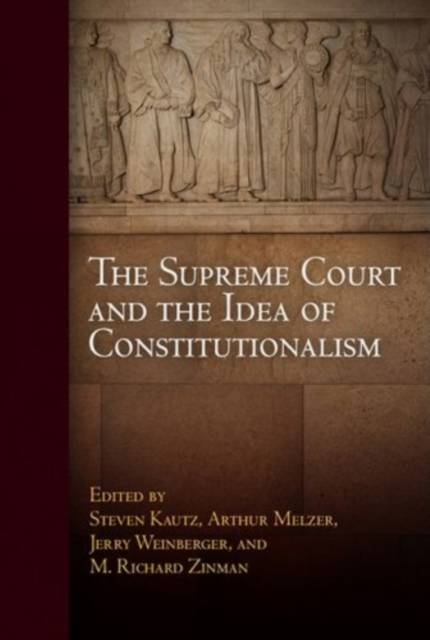
- Retrait gratuit dans votre magasin Club
- 7.000.000 titres dans notre catalogue
- Payer en toute sécurité
- Toujours un magasin près de chez vous
- Retrait gratuit dans votre magasin Club
- 7.000.0000 titres dans notre catalogue
- Payer en toute sécurité
- Toujours un magasin près de chez vous
The Supreme Court and the Idea of Constitutionalism
60,95 €
+ 121 points
Description
From Brown v. Board of Education to Roe v. Wade to Bush v. Gore, the Supreme Court has, over the past fifty years, assumed an increasingly controversial place in American national political life. As the recurring struggles over nominations to the Court illustrate, few questions today divide our political community more profoundly than those concerning the Court's proper role as protector of liberties and guardian of the Constitution. If the nation is today in the midst of a "culture war," the contest over the Supreme Court is certainly one of its principal battlefields.
In this volume, distinguished constitutional scholars aim to move debate beyond the sound bites that divide the opposing parties to more fundamental discussions about the nature of constitutionalism. Toward this end, the volume includes chapters on the philosophical and historical origins of the idea of constitutionalism; on theories of constitutionalism in American history in particular; on the practices of constitutionalism around the globe; and on the parallel emergence of--and the persistent tensions between--constitutionalism and democracy throughout the modern world. In democracies, the primary point of having a constitution is to place some matters beyond politics and partisan contest. And yet it seems equally clear that constitutionalism of this kind results in a struggle over the meaning or proper interpretation of the constitution, a struggle that is itself deeply political. Although the volume represents a variety of viewpoints and approaches, this struggle, which is the central paradox of constitutionalism, is the ultimate theme of all the essays.Spécifications
Parties prenantes
- Editeur:
Contenu
- Nombre de pages :
- 328
- Langue:
- Anglais
- Collection :
Caractéristiques
- EAN:
- 9780812221909
- Date de parution :
- 15-08-11
- Format:
- Livre broché
- Format numérique:
- Trade paperback (VS)
- Dimensions :
- 150 mm x 226 mm
- Poids :
- 498 g

Les avis
Nous publions uniquement les avis qui respectent les conditions requises. Consultez nos conditions pour les avis.





